The
Co-Option Pillar of American “Democracy”
“The
best way to control the opposition is to lead it”—[A quote often
attributed to Lenin]
“If
way to the Better there be, it exacts a full look at the
Worst.”—Thomas
Hardy
Phil
Ochs: “Love me, I’m a Liberal”
I
cried when they shot Medgar Evers
Tears ran down my spine when
they shot Mr. Kennedy
As though I’d lost a father of mine
But
Malcolm X got what was coming
He got what he asked for this
time
So love me, love me, love me, I’m a liberal [1]
I
go to civil rights rallies
And I put down the old D.A.R.
I
love Harry and Sidney and Sammy
I hope every colored boy becomes
a star
But don’t talk about revolution
That’s going a
little bit too far
So love me, love me, love me, I’m a liberal
. . .
I
read underground papers and Newsweek
I’ve learned to take
every view
I’ve warned Vietnam is atrocious
I wish to God
that fighting was through
But when it comes to the army of
Israel
There’s no one more red white and blue
So love me,
love me, love me, I’m a liberal
Phil
Ochs, 1940-1976
I
vote for the Democratic Party
They want the U.N. to be strong
I
attend all the Phil Ochs concerts
I sure wish he’d write some
new songs
I’ll send all the money you ask for
But don’t
ask me to come on along
So love me, love me, love me, I’m a
liberal
Sure,
once I was young and impulsive
I wore every conceivable pin
Even
went to the socialist meetings
Learned all the old union
hymns
Ah, but I’ve grown older and wiser
And that’s why
I’m turning you in
So love me, love me, love me, I’m a
liberal
***
Introduction: Pillars of
American “Democracy”
How did the bankers and their accomplices
manage to steadily increase their power and wealth at the expense of
the vast majority? How did they manage to undermine freedom,
justice, peace—and humanity’s prospects for long-term survival?
What accounts for their astounding success in turning this beautiful
blue and green planet into a raging cauldron of materialism and hate?
[2] The answer to such questions is of great scholarly and
humanitarian interest, involving an extremely complex, multi-faceted,
answer. The answer is also an essential component of a
revolutionary toolkit, as Sun Tzu explained: “If you know
neither the enemy nor yourself, you will succumb in every battle.”
The edifice the bankers built rests on a
dozen or so mutually-supporting pillars. I have drawn attention
to five of these pillars elsewhere:
The next series of articles explores a sixth
pillar: Co-option.
***
Benefits
of Leading, Infiltrating, or Co-opting the Opposition:
1.
Diminishing the number of potential revolutionaries.
As a rule, a compassionate truth-seeker attempting to escape
the cave of political illiteracy does so labori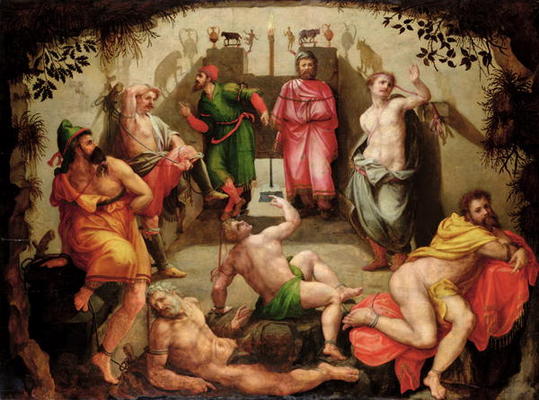 ously
and gradually. At a certain point, she realizes that most mainstream
schools, universities, religions, newspapers, books, movies,
websites, radio and television broadcasts everywhere in the world,
are little more than mind-control operations. As she strikes out on
her own, desolate and disillusioned, she naturally seeks
companionship and validation of her new, hard-gained, insights.
ously
and gradually. At a certain point, she realizes that most mainstream
schools, universities, religions, newspapers, books, movies,
websites, radio and television broadcasts everywhere in the world,
are little more than mind-control operations. As she strikes out on
her own, desolate and disillusioned, she naturally seeks
companionship and validation of her new, hard-gained, insights.
Plato’s
Cave, Flemish School, 16th century, Musée de la Chartreuse, Douai,
France
At that point, the ruling bankers are there, waiting to outfox her
again with their phony reform organizations, media outlets, and
dissidents. If our truth seeker is disturbed by the bankers’
needless program of environmental destruction, she may gravitate to
organizations such as the Sierra Club or the Union of Concerned
Scientists, which have all the trappings of reform organizations but
which are part of the bankers’ network of control. Concerned about
human rights? Well, the bankers are already down there in the
trenches, along with their well-financed Human
Rights Watch and Amnesty
International. Civil Liberties? Welcome to the ACLU. Civil
rights? Why not try the co-opted NAACP, SPLC, or Barack Obama?
Sunshine bribery in politics? Common Cause welcomes her into their
fold with its $50 or whatever-she-can-afford plea.
Or maybe our struggling truth-seeker is trying to improve her
understanding of humanity’s plight and learn from those ahead of
her in the ascent to the sunlight? Here she will encounter the
bankers-supported Democracy Now, Nation Magazine,
the Guardian, Counterpunch, Fair, National
Public Radio, and so many other front organizations—well-meaning
perhaps, but constrained by their dependence on bankers’ money.
Thus, co-option sees to it that most compassionate truth seekers
never emerge farther than this web of manufactured dissent.
Even those few who emerge may require years or decades to do so.
By then, they might be too old or weary to fight the system. At the
very least, the bankers managed to slow down their advance towards
truth and meaningful action.
Moreover, our hapless truth seekers, having come so far, might
become disillusioned and wrongly conclude that all human beings are
worthless, and that there is no point fighting for a better world.
Photo: Besides the murdered Hugo Chavez
(pictured) and Pat Tillman,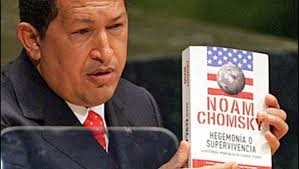 Noam Chomsky played a key role in the partial awakening of another
idealist–Aaron
Swartz.
Noam Chomsky played a key role in the partial awakening of another
idealist–Aaron
Swartz.
2. A magnet for genuine dissidents.
Or maybe our waking sleeper is looking for
like-minded individuals for camaraderie, validation, and exchange of
ideas? Again the bankers are there, ready to direct her to all the
leading, naive or double-crossing, dissident historians, authors,
observers, journalists, broadcasters, and activists fit to
print or listen to. David
Martin offers one example of this Machiavellian device:
“Pat
Tillman’s attempt to leak to the fake dissident Chomsky might well
have been what got him killed. That’s one of the reasons the
secret government creates phony critics. They serve as magnets
for would-be whistleblowers.”
3. Confusing the general public.
With captive information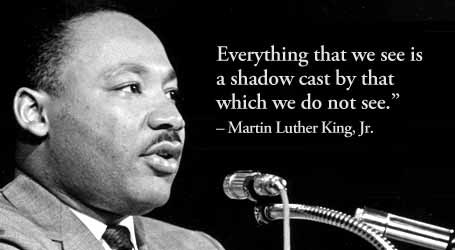 sources and compromised reformers, with so many reputable (and well
paid) “dissidents” and “skeptics” and so many “disputes”
about elementary points, how is the average person to figure out what
policy best serves her interests and convictions?
sources and compromised reformers, with so many reputable (and well
paid) “dissidents” and “skeptics” and so many “disputes”
about elementary points, how is the average person to figure out what
policy best serves her interests and convictions?
Climate
disruptions [3] and Cold
War I [4] provide two examples of changing the course of history
by infiltrating and bribing the scholarly community. The
disgraceful role of the late population geneticist, “Sir” R.A.
Fisher in the tobacco controversy provides another example. Finally,
co-opted dissidents, historians, and progressives play a key role in
suppressing a free marketplace of ideas about 9/11 and the culling of
the Kennedy clan.
4. Squandering the humanitarian
camp’s meager resources. The
co-opted opposition diverts to itself donations of time and money
that could otherwise reach genuine reformers. Consider for instance
donations from misguided middle-class donors to the National Wildlife
Federation. These donations could have been used for something other
than supporting a federation that depends on the enemies of wildlife
for its cushy existence and which acknowledges
paying its CEO an annual salary (in 2,013) of $365,908.
5. Weakening and dividing the
opposition. The need for constant vigilance, for
always looking over one’s shoulder when dealing with one’s
comrades, encumbers the humanitarian camp. This is a major problem
for revolutionaries and dissidents, well-documented
in many historical cases. Fictional accounts (and possible
solutions) include Robert Heinlein’s The
Moon is a Harsh Mistress and Ira Levin’s .This
Perfect Day
6. Intelligence gathering.
Consider, for instance, the bankers’ war against Martin
Luther King. To smear, imprison, blackmail,
preempt, and–when nothing else worked–assassinate
King, the bankers needed inside information. Besides constant
shadowing and illegal wiretapping, their FBI lackeys infiltrated
King’s circle of trusted collaborators.
“Martin
Luther King’s friend and photographer was an FBI informant. Ernest
Withers, who was trusted by the civil rights leader to sit in on
strategy meetings, spied on black activists and white radicals.
E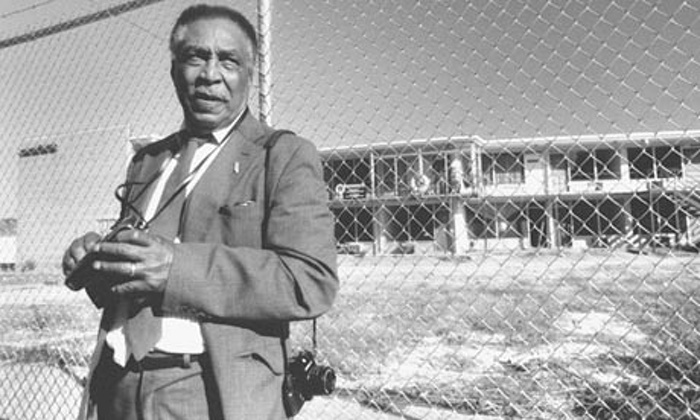 rnest
Withers outside the Lorraine motel where Martin Luther King was
shot
rnest
Withers outside the Lorraine motel where Martin Luther King was
shot
“Martin
Luther King must have imagined that the man with the camera so often
at his side was doing no more than recording history. But it has been
revealed that Ernest Withers – who was on hand to capture King
riding newly desegregated buses and the shock of the civil rights
leader’s allies immediately after his murder – was also an FBI
informer.
“The
double life of one of the most celebrated photographers of the civil
rights era was exposed by the Commercial
Appeal
newspaper in Memphis, which reported that Withers passed on
photographs to the FBI along with names and background information
about activists and details of schedules.”
7.
Diverting attention of the vast majority from unspeakable government
crimes which could perhaps trigger a revolution.
James
Corbett [5] explains:
“The
function of a gatekeeper is not to spout lies 100% of the time or to
be some sort of a bumbling fool who doesn’t know what he is talking
about. It is to be exceptionally smart, exceptionally good,
exceptionally keen analyst on enough topics that people would buy
into what you are saying. So that on one or two topics that you
have to skirt around and that you have to get your audience to stop
paying attention to, you can do so with some credibility—building
up the capital in order to spend it.”
8. Covering up, justifying, or
legitimizing policies which benefit the bankers but counteract the
interests and convictions of the vast majority.
Here
is an environmental
example [6]: A
co-option pioneer
“W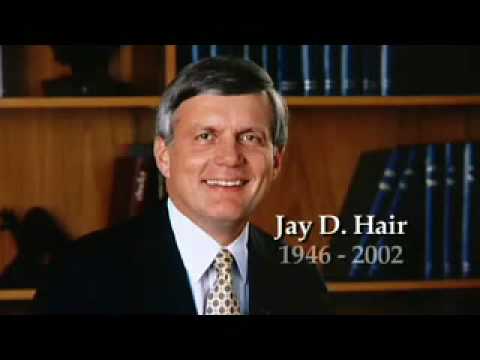 hile
I witnessed these early stages of ecocide, I imagined that American
green groups were on the people’s side in the corridors of Capitol
Hill . . . But it is now clear that many were on a different
path – one that began in the 1980s, with a financial donation.
hile
I witnessed these early stages of ecocide, I imagined that American
green groups were on the people’s side in the corridors of Capitol
Hill . . . But it is now clear that many were on a different
path – one that began in the 1980s, with a financial donation.
“US
environmental groups used to be funded largely by their members and
wealthy individual supporters. They had only one goal: to prevent
environmental destruction. Their funds were small, but they played a
crucial role in saving vast tracts of wilderness and in pushing into
law strict rules forbidding air and water pollution. But Jay Hair –
the president of the National Wildlife Federation from 1981 to 1995 –
was dissatisfied. He identified a huge new source of revenue: the
worst polluters.
“Hair
found that the big oil and gas companies were happy to give money to
conservation groups. Yes, they were destroying many of the world’s
pristine places. Yes, by the late 1980s, it had become clear that
they were dramatically destabilising the climate – the very basis
of life itself. . . . He began to suck millions from them, and his
organisation and others gave them awards for “environmental
stewardship”. Companies such as Shell and BP were delighted. They
saw it as valuable “reputation insurance”: every time they are
criticised for their massive emissions of warming gases, or for
events such as the massive oil spill that has just turned the Gulf of
Mexico into the “Gulf of Texaco”, they wheel out their shiny
green awards to ward off the prospect of government regulation and to
reassure the public that they Really Care.”
9. Discrediting the dissident camp.
If FBI agents infiltrate demonstrations against a rising tide of
wanton police criminality in Baltimore, and if these agents then
proceed to loot and vandalize homes and small businesses, the public
at large will have less sympathy for the struggle against
bankers-engineered police brutality. [7]
10. Replacing troublesome policy makers
with compliant ones—in either countries or reform organizations.
In 2014, the CIA and fake democracy groups such as the National
Endowment for Democracy or Soros’ Open Society Institute led the
opposition in Ukraine, thereby converting a livable, independent
kleptocracy into a tragic U.S.-owned colony. Similarly, by
applying the carrot and stick approach, one tycoon (perhaps for
understandable motives) precipitated
the retirement from the Sierra Club of the principled
environmentalist David Brower. Brower went on to found Friends
of the Earth from which he—the founder—was again fired by a
compromised and “corrupt
board of directors.” [8]
A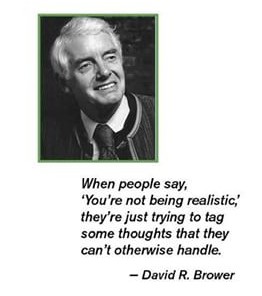 twice-co-opted environmentalist
twice-co-opted environmentalist
Conclusion
It will be seen then that leading,
infiltrating, and controlling the opposition provide a powerful
instrument in any war—including the tyrants’ war against
humanity.
Forthcoming articles in this co-option
series will document the ubiquity of compromised dissent, provide
criteria for its detection, and apply these criteria to a sampler of
organizations and individuals.

Notes and References
1.
Thanks to the bankers, the term “liberal” had a different
connotation for Phil Ochs than it does for us today.
What was once a “liberal” is now, probably, a “progressive.”
2.
Another world is
possible. Historical examples of fairly happy people leading
meaningful lives include ancient
democratic Athens and the Iroquois Confederation. Fictional
accounts of seemingly realizable utopias include Aldous Huxley’s
Island
and Ursula Le Guin’s The
Dispossessed. Most illiterate people were likewise happier
than we are, e.g., Stefansson, Vilhjalmur. Lessons
In Living from the Stone Age. And here is another confirmation I
chanced across the other day (from Paul Hoefler, Africa
Speaks,
1931, p. 351):
“I
wondered if all the thousands of intervening years had brought the
measure of happiness to some of us that these people enjoy, for they
do enjoy life every day, dancing and chanting, visiting one another,
hunting when necessary. This is their life, simple in all its
elements, from the day of birth until death claims their pygmy
bodies.”
3.
Nissani, Moti., Media
Coverage of the Greenhouse Effect. Population
and Environment: A Journal of Interdisciplinary Studies
21: 27-43 (1999).
4.
Nissani, Moti.
Lives in
the Balance: The Cold War and American Politics,
1945-1991 (1992).
5.
Martin,
David, 2012, Chomsky,
the Fraud, on 9/11.
6.
Hari, Johann, Polluted
by profit, The
Independent
(2015).
7.
See, for instance, Wikipedia:
COINTELPRO.
8.
Salzman, Lorna. The
Decline and Fall of Friends of the Earth in the United States
(1990).
Moti
Nissani’s Webpage
 ously
and gradually. At a certain point, she realizes that most mainstream
schools, universities, religions, newspapers, books, movies,
websites, radio and television broadcasts everywhere in the world,
are little more than mind-control operations. As she strikes out on
her own, desolate and disillusioned, she naturally seeks
companionship and validation of her new, hard-gained, insights.
ously
and gradually. At a certain point, she realizes that most mainstream
schools, universities, religions, newspapers, books, movies,
websites, radio and television broadcasts everywhere in the world,
are little more than mind-control operations. As she strikes out on
her own, desolate and disillusioned, she naturally seeks
companionship and validation of her new, hard-gained, insights. Noam Chomsky played a key role in the partial awakening of another
idealist–
Noam Chomsky played a key role in the partial awakening of another
idealist– sources and compromised reformers, with so many reputable (and well
paid) “dissidents” and “skeptics” and so many “disputes”
about elementary points, how is the average person to figure out what
policy best serves her interests and convictions?
sources and compromised reformers, with so many reputable (and well
paid) “dissidents” and “skeptics” and so many “disputes”
about elementary points, how is the average person to figure out what
policy best serves her interests and convictions?
 hile
I witnessed these early stages of ecocide, I imagined that American
green groups were on the people’s side in the corridors of Capitol
Hill . . . But it is now clear that many were on a different
path – one that began in the 1980s, with a financial donation.
hile
I witnessed these early stages of ecocide, I imagined that American
green groups were on the people’s side in the corridors of Capitol
Hill . . . But it is now clear that many were on a different
path – one that began in the 1980s, with a financial donation. twice-co-opted environmentalist
twice-co-opted environmentalist